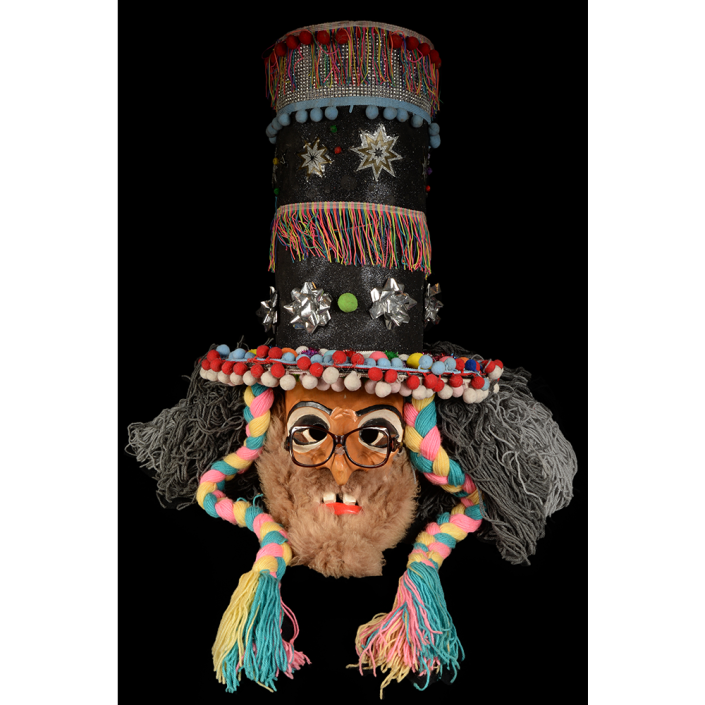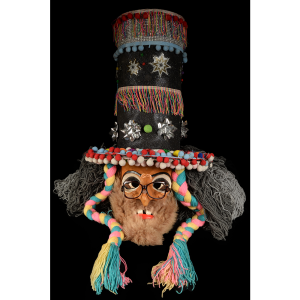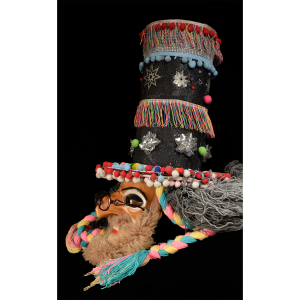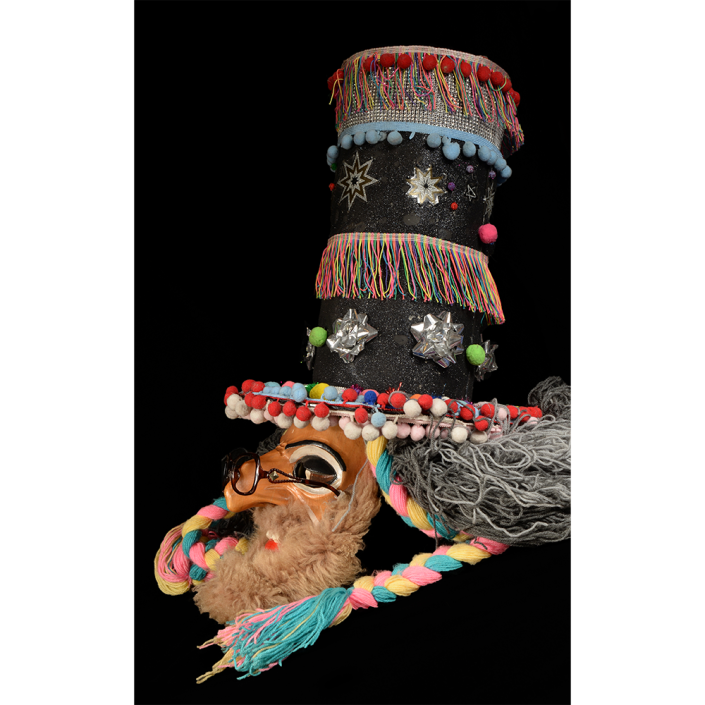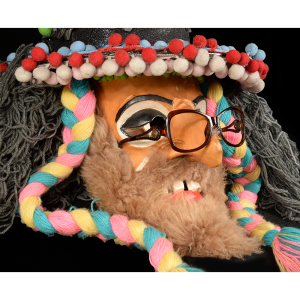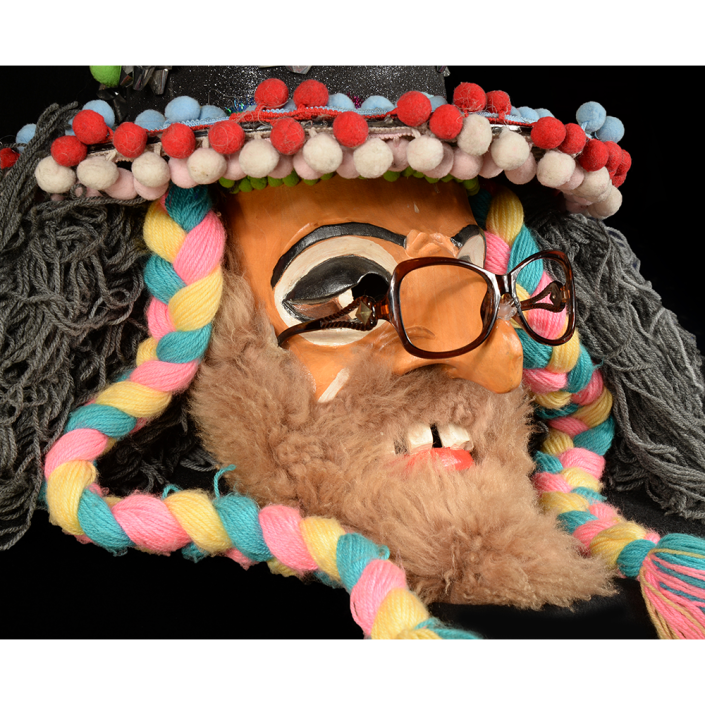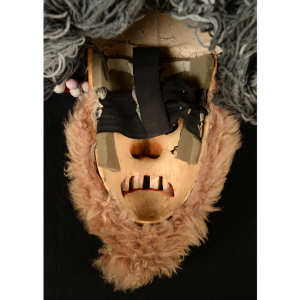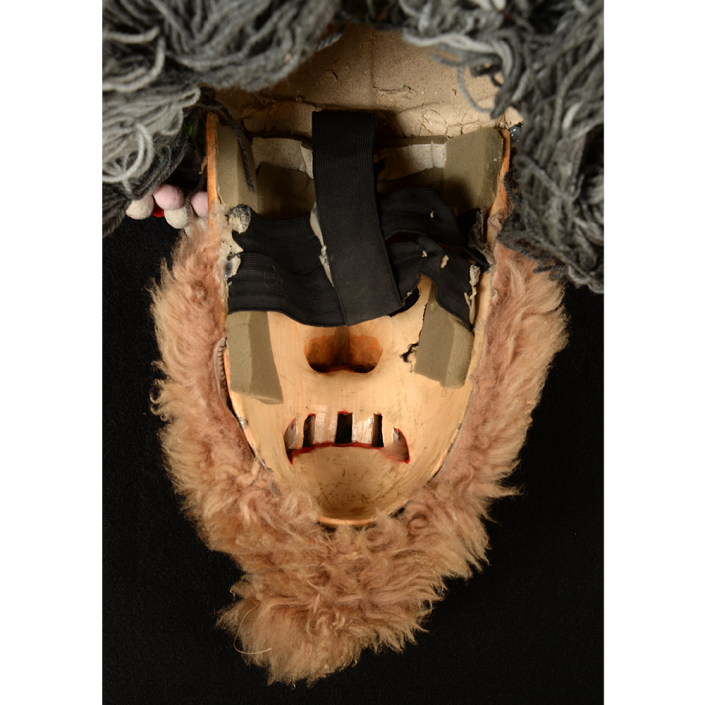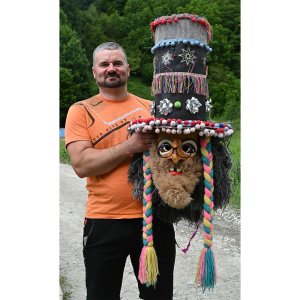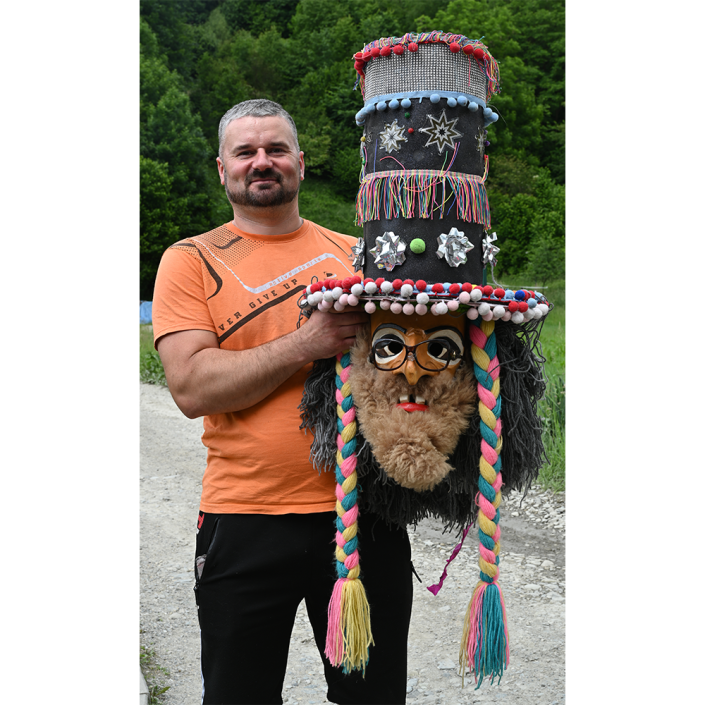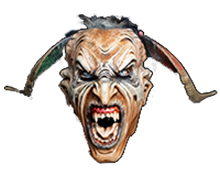TITLE: Jew (Żyd) Kolędowania Mask
TYPE: helmet mask
GENERAL REGION: Europe
COUNTRY: Poland
ETHNICITY: Polish
DESCRIPTION: Mask of Jewish Merchant
CATALOG ID: EUPO003
MAKER (Mask): Grzegorz Kuśnierz (Cisiec, 1973- )
MAKER (Hat): Pavel Sleziak (Cisiec, 1986- )
CEREMONY: Kolędowania (New Year’s Caroling)
AGE: 2014
MAIN MATERIAL: linden wood
OTHER MATERIALS: sheep leather and wool; dyed cotton yarn; paint; polyester; plastic glasses; plexiglass and paper hat; glue; plastic decorations; cotton decorations; foam rubber; elastic straps; stitching
Kolędowania is a tradition of new year’s caroling in Poland. But in parts of southern and western Poland around the Żywiec region, the tradition involves more than going from house to house singing Christmas songs. Troupes of masked and costumed dancers appear at each house to beg for money and food in exchange for the songs. The precise cast differs from town to town, but in general it involves a stock set of characters that include horses, Jewish merchants, one or more Roma, devils, bears, and a personification of Death. It may also involve other characters from around town, such as potters, chimneysweeps, police, blacksmiths, and telephone operators. The groups can include up to 50 or more characters who dance and act out dramas for the benefit of the village. Only men and boys may participate in the dance-drama. Before 1939, only unmarried youths were allowed to participate, but since that time married men have been included as well.
In the towns of Cisiec and Milówka, for example, the leader will approach each house to ask for food or money on New Year’s Eve. This character may be unmasked to avoid frightening children in the house, and may represent a Roma. The remainder of the troupe sings and dances a drama involving a number of horses, which are characters in body costumes and huge hats representing strength and vitality. The horses are tended by a masked Roma carrying a whip. Four devils (two black and two red), two bears (a dark and a light), 10 Jewish merchants, 10 characters called macidula or sznurkosz, Death, and various characters representing occupations dance before the houses. The macidula represents an unmarried, pregnant woman, and so may carry a doll representing a child and wear rags to show her poverty. In some towns, she carries a stuffed rabbit with which she strikes villagers for good luck. In some towns, there is also a bride character, or a female Roma, an insurance salesman, or other characters. In the drama, the horses eventually become exhausted, and Death comes to carry them away. But the devils fight off Death while the Roma revives the horses, symbolizing the protection of the village and its prosperity. The entire proceeding is accompanied by a small band whose configuration varies by place, but generally includes a drum, a rattle staff with cymbals, and several Slovakian instruments known as “heligonka,” a form of diatonic button accordion.
